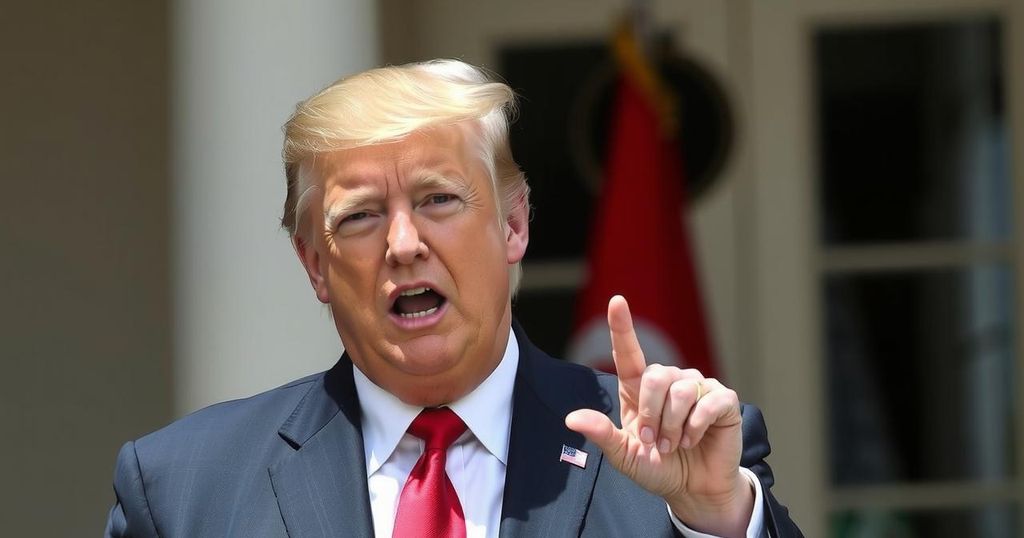Trump’s Non-Interventionist Stance on the Syrian Crisis Ahead of Inauguration
President-elect Donald J. Trump is set to address the Syrian crisis with a likely non-interventionist approach, expressing skepticism about U.S. involvement in foreign conflicts. His statements reflect disdain for Syria’s situation, described as a “mess,” and he has encouraged restraint. The appointment of Tulsi Gabbard suggests a continued emphasis on avoiding military engagement, while the debate among advisers is expected to shape future U.S. policy.
President-elect Donald J. Trump is poised to confront a significant challenge regarding the ongoing crisis in Syria upon his inauguration in January. The complexity of the situation, characterized by the presence of rebel factions with extremist ties, leaves Trump’s potential strategies open to speculation. His public remarks indicate a strong inclination towards a non-interventionist stance, reflecting his long-held skepticism towards U.S. military engagement in foreign conflicts, particularly in the Middle East, which he refers to as a realm of “sand and death.”
With the Syrian civil war reaching critical junctures, Mr. Trump’s comments during recent developments highlight his perspective. Following instances where rebel forces encroached on Damascus, he articulated on social media that the United States should remain uninvolved, asserting, “This is not our fight. Let it play out. Do not get involved.” This viewpoint has found resonance among his supporters, including Vice President-elect JD Vance, who shares criticism of prolonged American foreign entanglements.
Furthermore, Trump intends to nominate Tulsi Gabbard as his director of national intelligence. Gabbard has publicly contended that U.S. intervention in the Syrian civil conflict would be misguided. As Trump prepares for the potential repercussions of his policies, the debate among his advisers and international allies regarding Syria’s future is expected to intensify and shape his administration’s response to the growing crisis.
The Syrian civil war has been ongoing since 2011, resulting in extensive loss of life and a humanitarian catastrophe. As various rebel factions, some linked to terrorist organizations, vie for control amid a fragmented landscape, global powers have grappled with the implications of their involvement. The incoming administration’s approach to Syria is particularly pertinent given Trump’s previous assertions about foreign conflicts often being fraught with misunderstanding and unwanted entanglements. His intention to avoid direct U.S. involvement aligns with a broader critique of past military operations in the region, highlighting a significant foreign policy stance.
In summary, President-elect Donald J. Trump appears to advocate for a hands-off approach to Syria, consistent with his longstanding skepticism of U.S. military interventionism. His remarks underscore a desire for restraint in America’s involvement in foreign conflicts, particularly as the complexities of the Syrian crisis unfold. With key appointments like Tulsi Gabbard, Trump’s foreign policy approach may reflect a significant departure from previous administrations’ tactics, though the impact of such decisions remains to be seen.
Original Source: www.nytimes.com




Post Comment